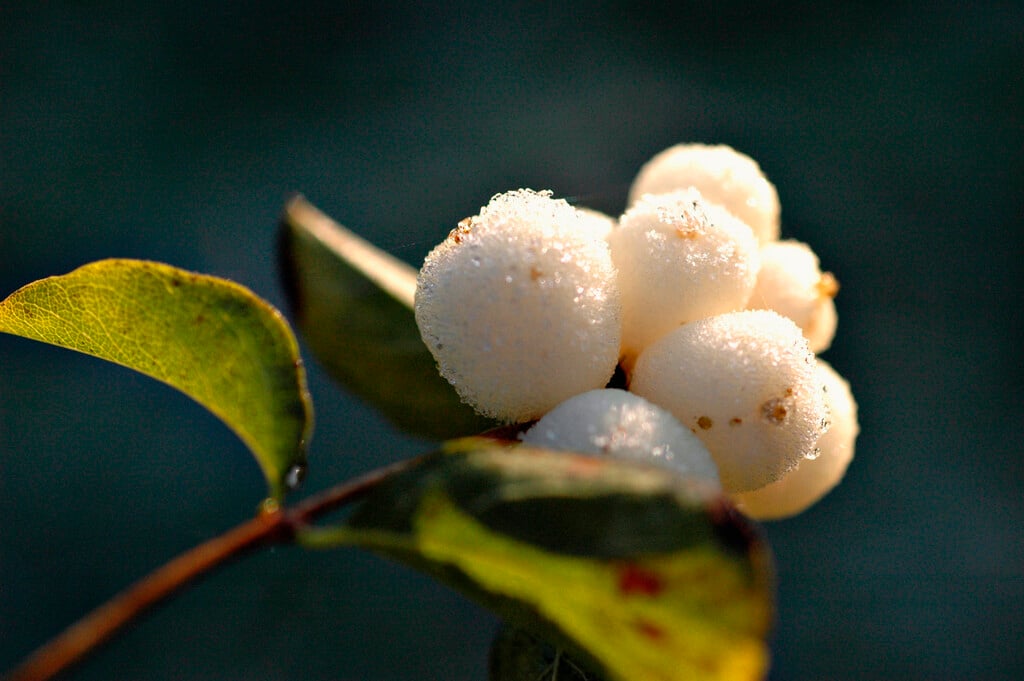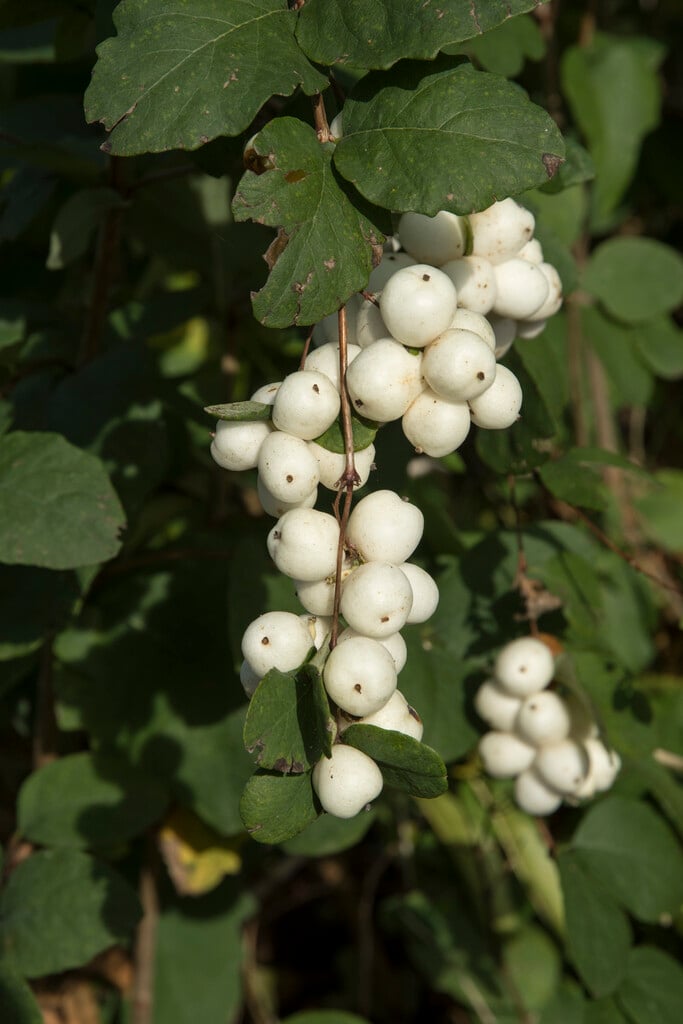Symphoricarpos albus var. laevigatus
snowberry
A vigorous, thicket-forming deciduous shrub, up to 3m high, with broadly oval-shaped dark blue-green leaves held in pairs along the stems; occasionally some are lobed. Short clusters of small pink bell-shaped flowers are produced in early summer; these are followed by tight clusters of large white berries that persist into winter. Spreads by suckering
Size
Ultimate height
2.5–4 metresTime to ultimate height
5–10 yearsUltimate spread
2.5–4 metresGrowing conditions
Moisture
Moist but well–drained, Well–drainedpH
Acid, Alkaline, NeutralColour & scent
| Stem | Flower | Foliage | Fruit | |
| Spring | Green | |||
|---|---|---|---|---|
| Summer | Pink | Green | ||
| Autumn | Green Yellow | White | ||
| Winter | White |
Position
- Full shade
- Full sun
- Partial shade
Aspect
East–facing or North–facing or South–facing or West–facing
Exposure
Exposed or Sheltered Hardiness
H7Botanical details
- Family
- Caprifoliaceae
- Native to GB / Ireland
- No
- Foliage
- Deciduous
- Habit
- Bushy, Columnar upright
- Potentially harmful
- Harmful if eaten. Wear gloves and other protective equipment when handling
- Genus
Symphoricarpos are twiggy deciduous shrubs, sometimes suckering, with small, simple leaves and tiny bell-shaped pink or white flowers, followed by juicy white pink or purple berries
- Name status
Correct
How to grow
Cultivation
Tolerates most soils and conditions, tolerant of pollution. Spreads vigorously; has potential to become a nuisance if suckering is not managed
Propagation
Propagate by softwood cuttings in summer or hardwood cuttings in autumn, or by division, transplanting rooted offsets in autumn
Suggested planting locations and garden types
- Cottage and informal garden
- Wildlife gardens
- Banks and slopes
Pruning
Pruning group 1 or 2 after flowering. Remove suckers in winter
Pests
May be susceptible to aphids
Diseases
May be susceptible to fungal leaf spots, powdery mildews, rust diseases, stem galls and honey fungus (rarely)
Love gardening
Sign up to receive regular gardening tips, inspiration, offers and more
View our Privacy Policy
Get involved
The Royal Horticultural Society is the UK’s leading gardening charity. We aim to enrich everyone’s life through plants, and make the UK a greener and more beautiful place.

